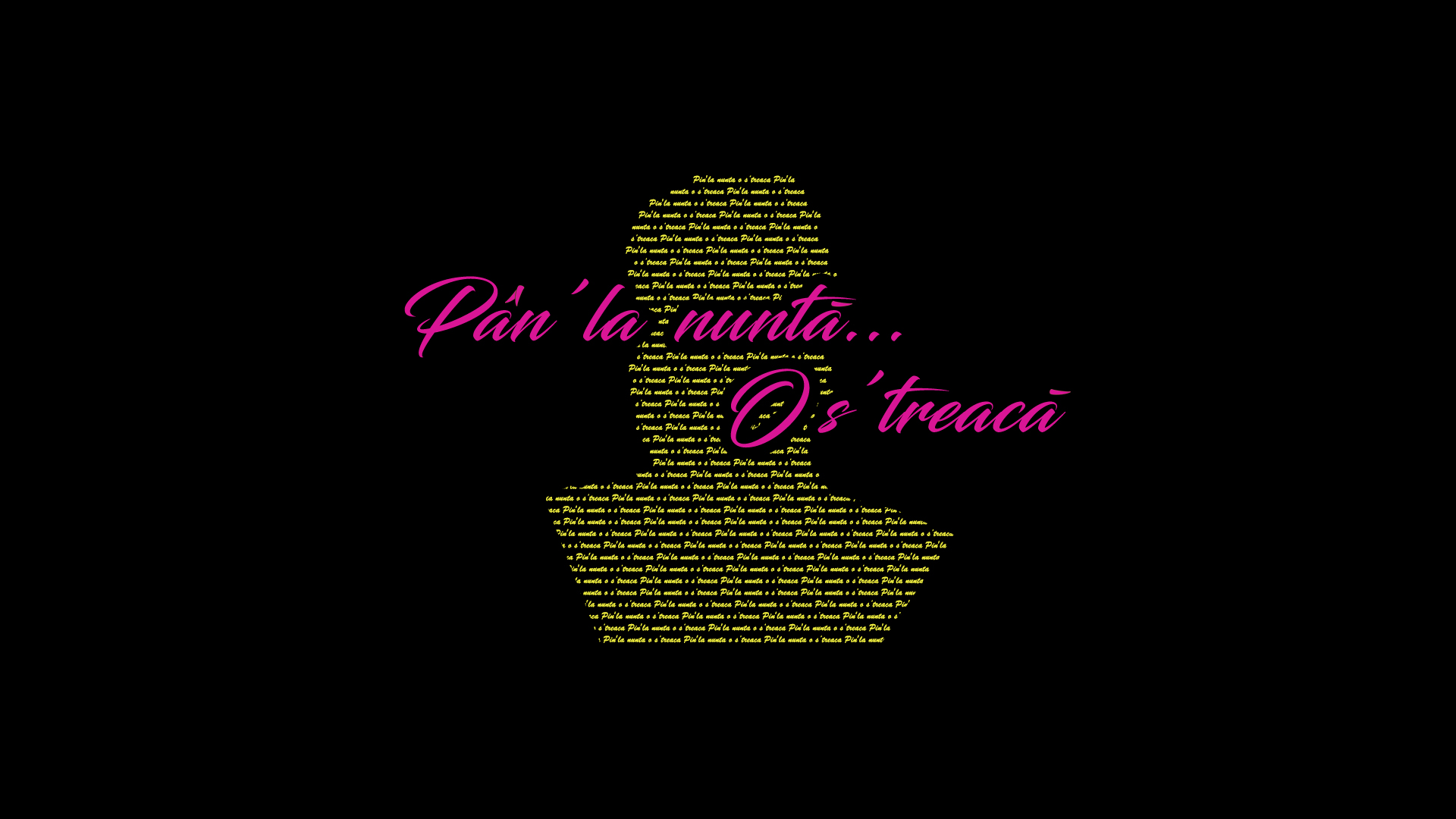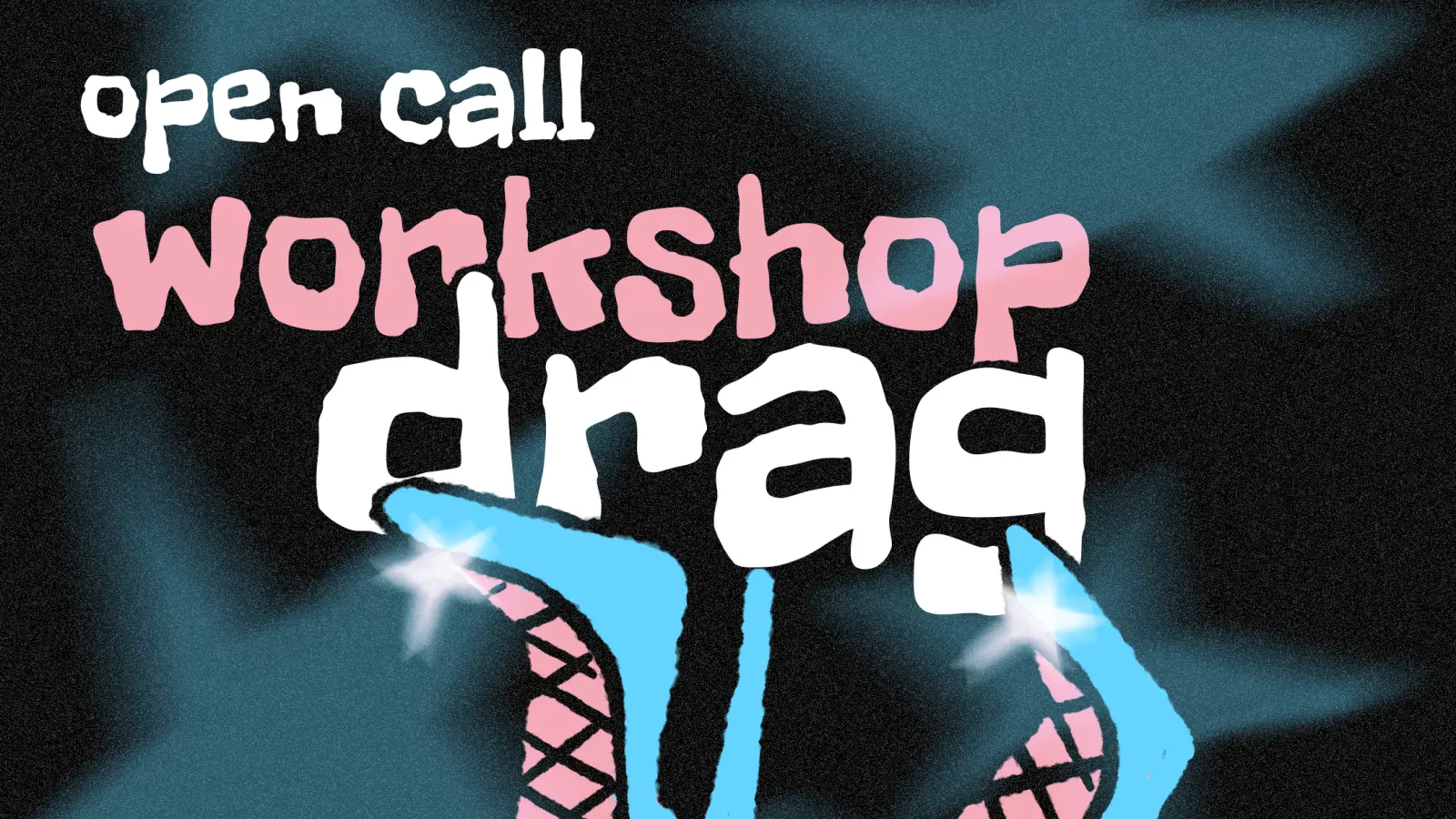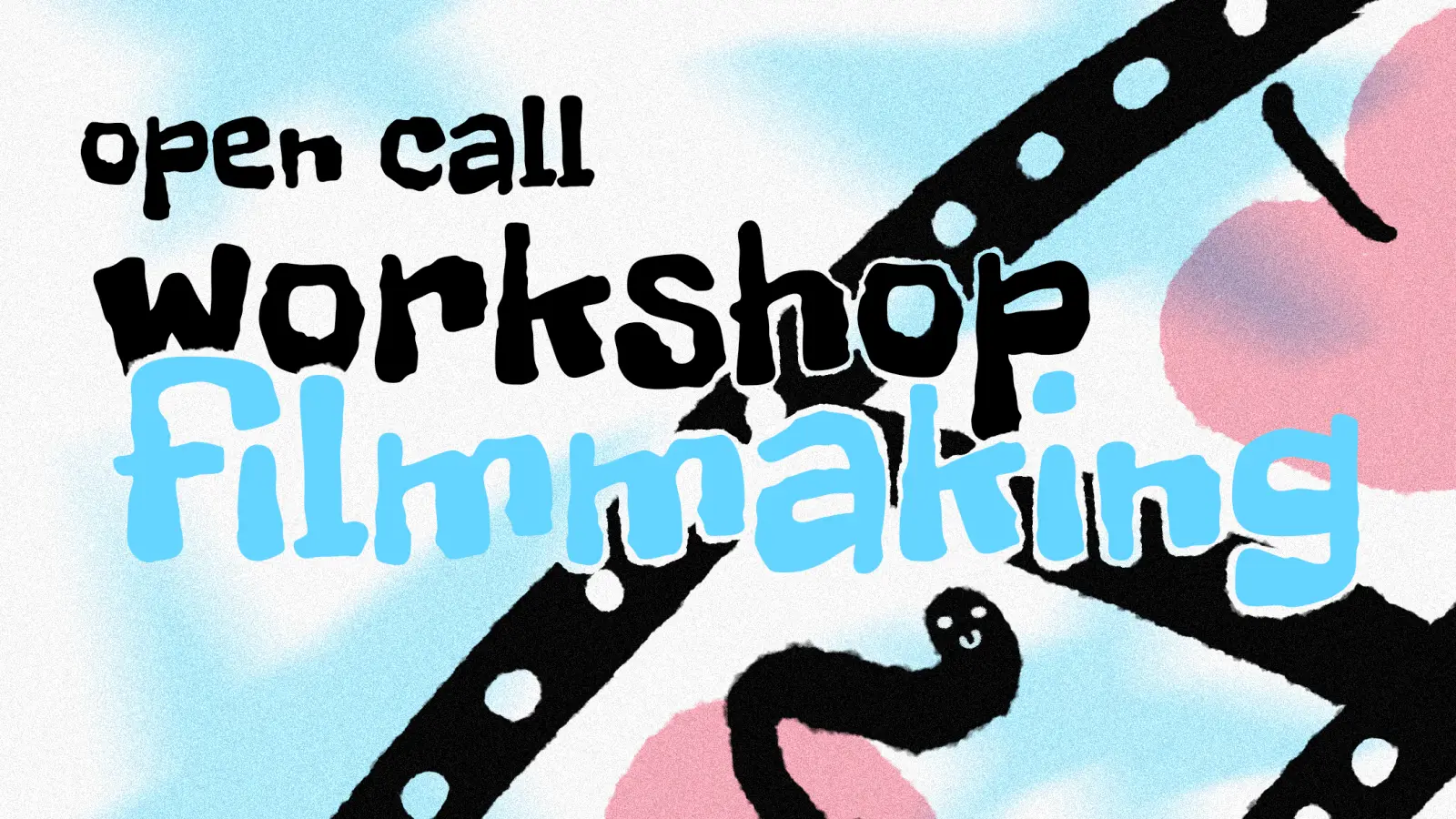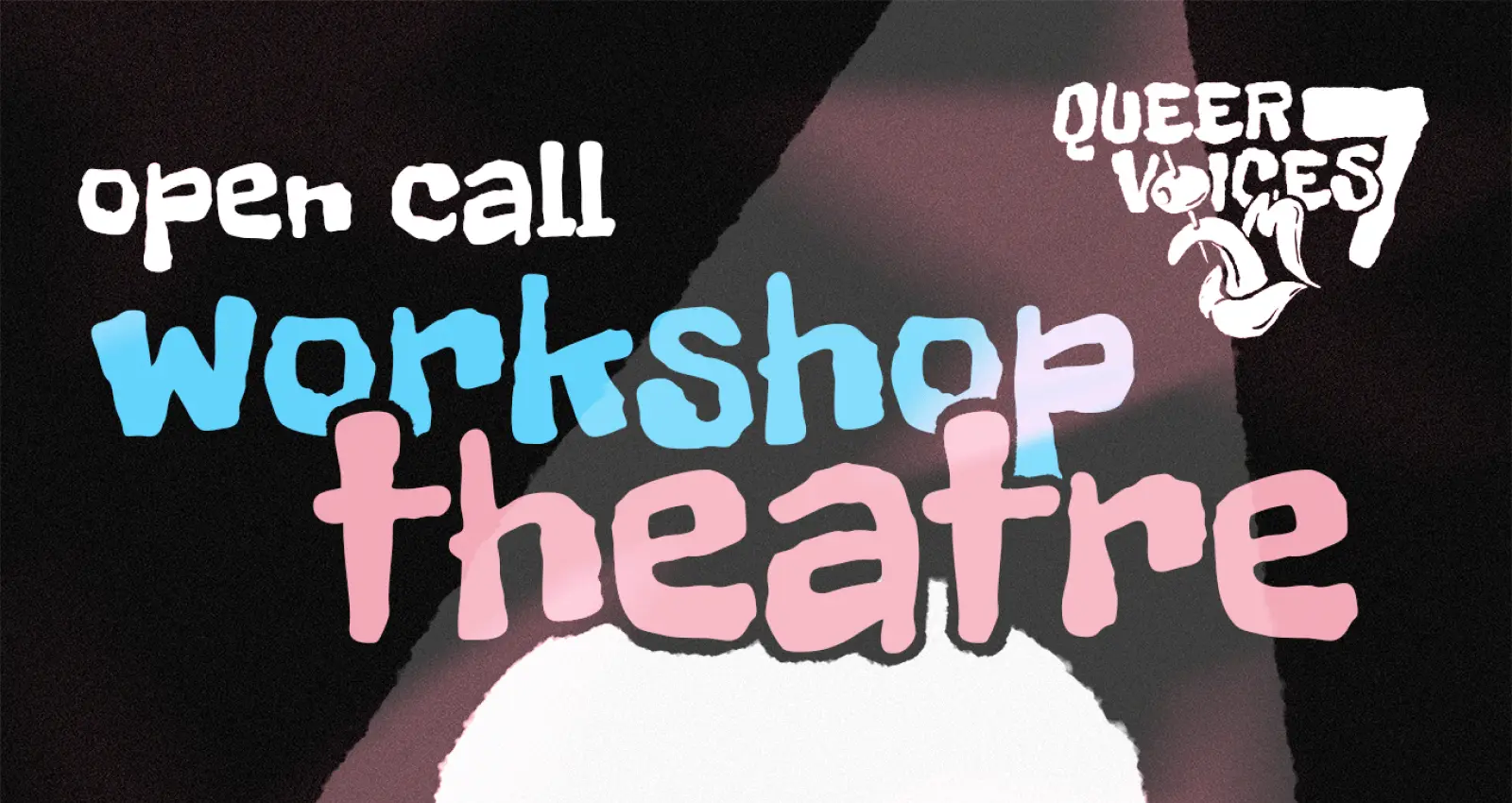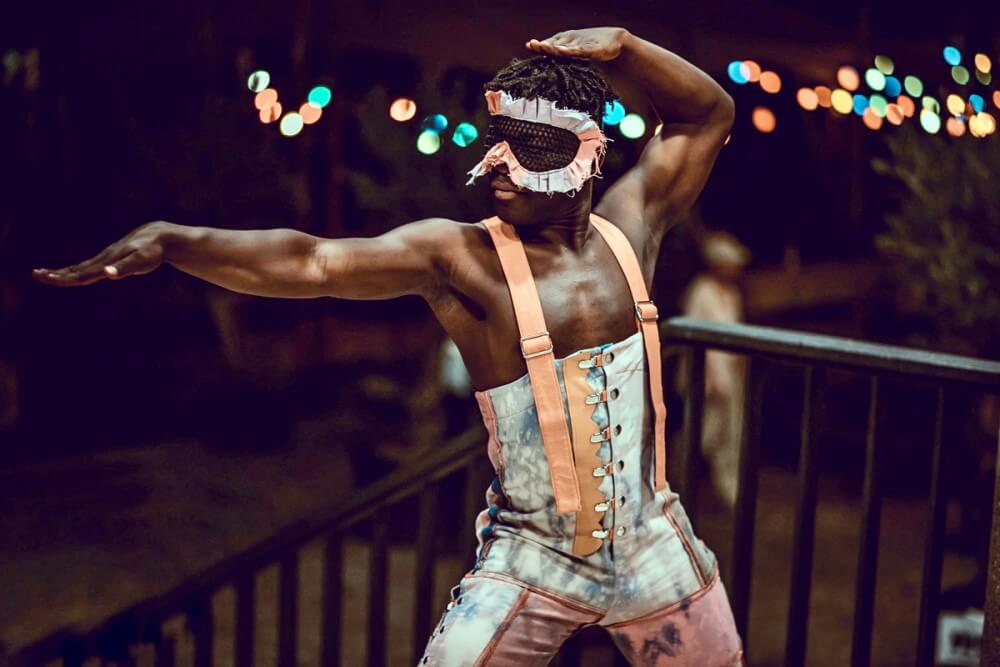The fourth edition of the Queer Voices International Film Festival finished a little bit more than a week ago, but it’s still one of the most talked about film events within the queer community in Moldova.
The motto of this year was “Pân’la nuntă o’s treacă” in translation from Romanian “Till the wedding, it will heal” which is a traditional expression our parents tell us when we are kids and we get hit. Thanks to this motto, all those involved in the Festival, including its guests, got to explore (again) the downsides of the heteronormative society we all live in, and gathered all the hurtful questions that will be, sooner or later, addressed in the Moldovan society.
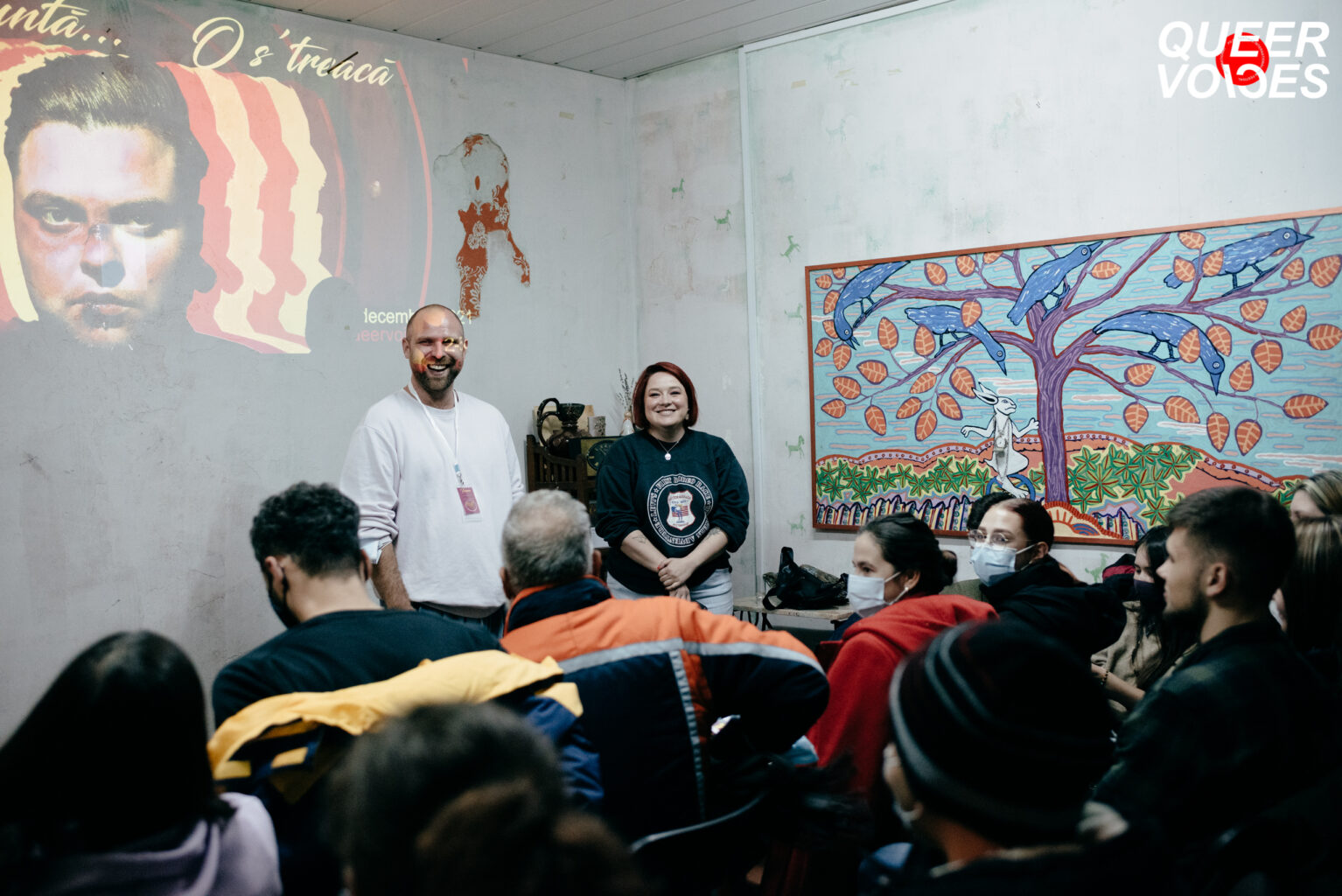
The Festival took place between 2-5 December, with a pre-festival screening of the long feature “Madalena” by Madiano Marcheti on 28 November 2021. The vast range of side events and learning opportunities have brought more than 300 people together to explore queer content within an extraordinary offline edition. The seven films gathered from across the globe celebrate queer culture and offer insightful views for those that still struggle with their identity and security, and for the allies of the LGBTQIA+ community, that can learn how to fight for the rights of the community and how to assure a secure and sacred space for it. The whole film program can be found here.

A premiere for the Festival and for Moldova were the three side events, organised with the support of the Swedish Institute and the Embassy Office of Netherlands in Chisinau. There was a concert with the local band Murmur de izvar, a project were the experimental vibe is very much appreciated by the local youth and music enthusiasts – hits like “Jinu’ de casa” and “Saprochie” were sang along with audience.
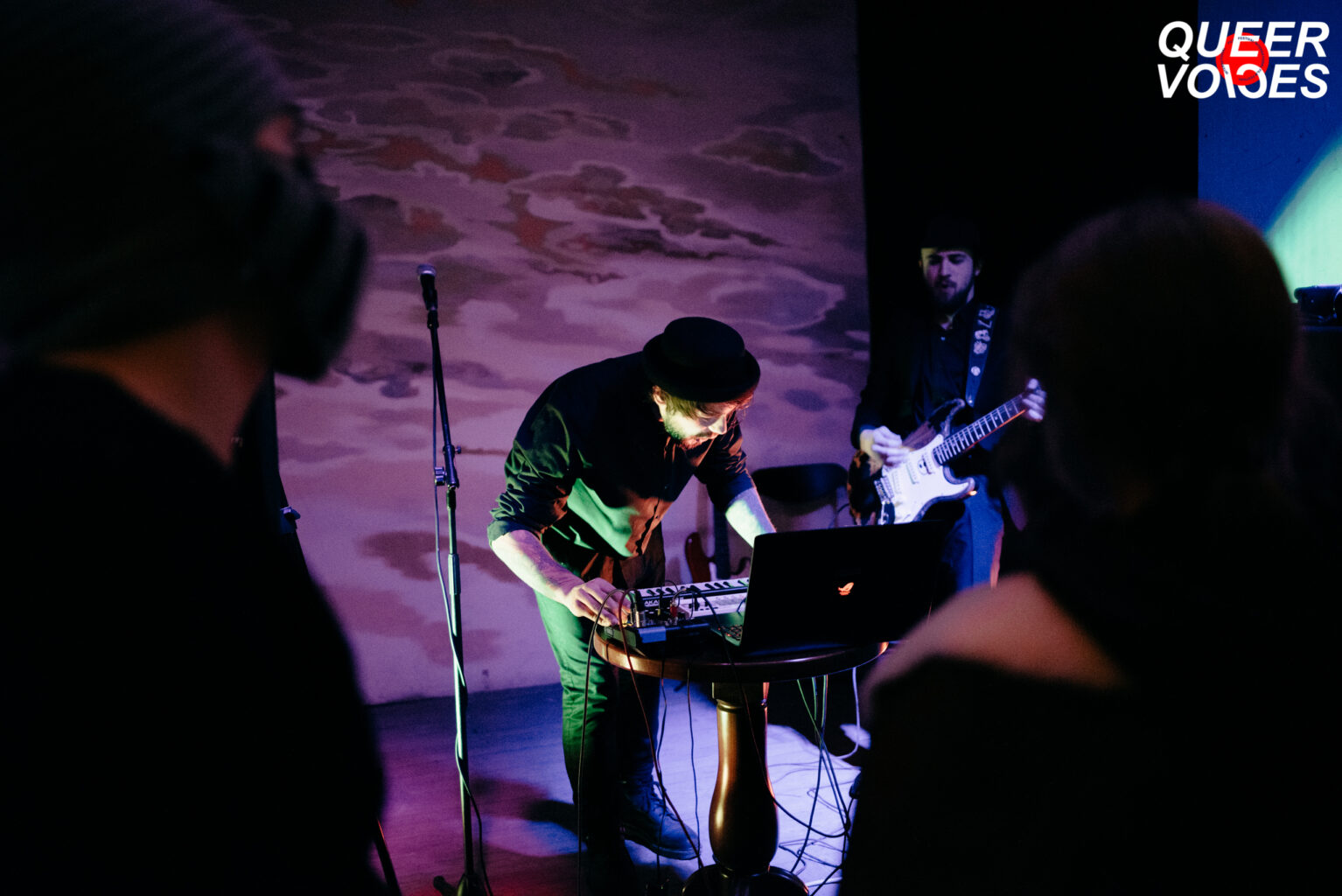
Another important event was the Queerdos ACTING UP performance “(ne)natural (in)vizibil queer”(from Romanian – “(un)natural (in)visible queer”), a result of the synergy between the Berlin-based performance ensemble Queerdos and QVIFF, that was coined during a summer workshop where Moldovan queer youth took part. The premiere of the performance was praised by the public, especially since the local theatre scene lacks queer content.
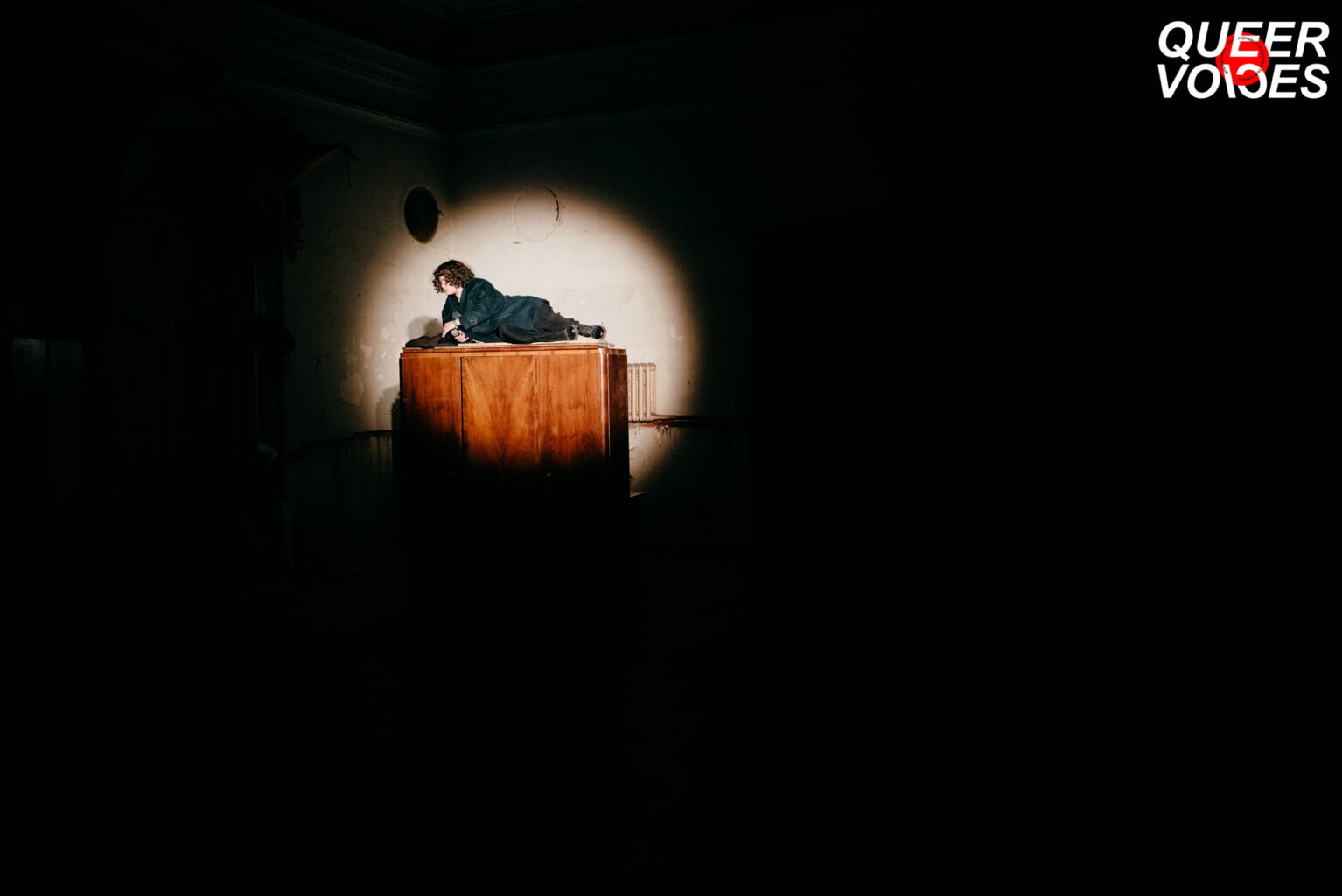
The Ballroom Tryout Session, the first Ballroom party ever held in Moldova, was an amazing experience for a variety of people that tried out their Ballroom skills in various categories – Face, Walk, Dance-off and other. A Ballroom workshop was held between 2-4 December, to let the interested individuals learn more on Ballroom culture, fashion, and voguing, and to perform their abilities during a party on 4 December. The tutors of the workshop, DavidDave Solar of KikiHouse of Solar and Shayne Angels of the KikiHouse of Angels, were also the judges of the Ballroom participants.
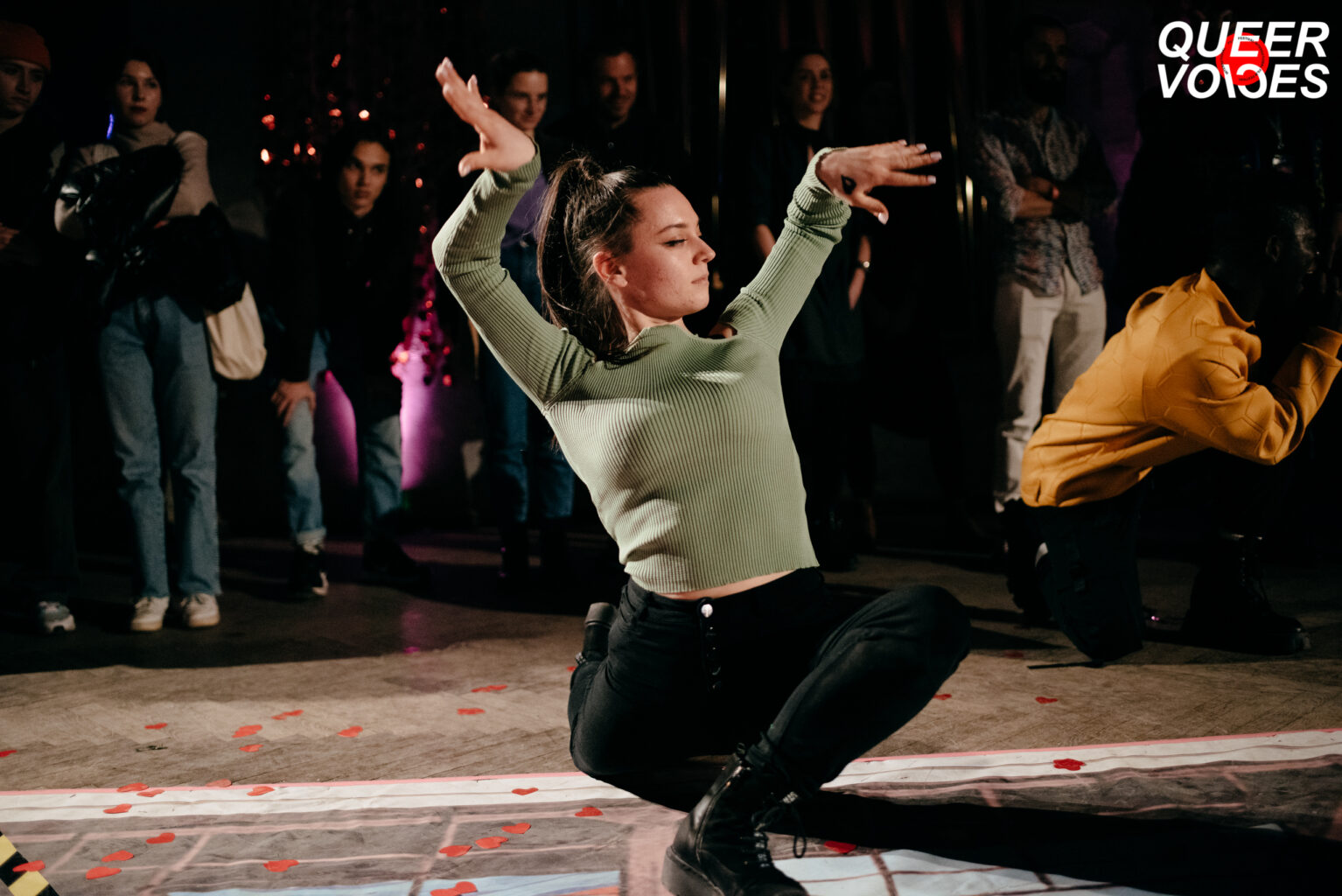
The Festival culminated with the screenings of the queer documentaries, created by the participants of the fourth edition of the Queer Voices Filmmaking Workshop. Its tutor was the film director from Greece and Festival longtime friend Panagiotis Evangelidis. Three out of four created queer film shorts participated in a pitching session, with a jury experienced in the domain of filmmaking – Miguel Jelelaty, actor and special guest of the QVIFF, protagonist of the “Miguel’s war” hybrid documentary by Eliane Raheb; Valentina Iusuphodjaev, Director of the National Centre of Cinematography of Moldova; Cat Jugravu, actor, performer, Director of the “(ne)natural (in)vizibil queer” performance. The main prize was given to the short “They don’t have much to show, do they”, by Cristian Doroftei and Arturo de Ita – a comedy horror anthology movie. The film consists of three separate tales that are introduced by an anchorman. The first story, titled “How to spot a homosexual?!”, is a propaganda movie that combines elements of propaganda movies from ’20s and ’50s eras. The second story, “Oppressed straight white guy”, is mostly inspired from articles found on alt-right and other shady reactionary sites that promote hate speech. The third story, titled “They are among us”, is a vox with real people from Chișinău who were required to answers to several silly questions about LGBTQ+ community.
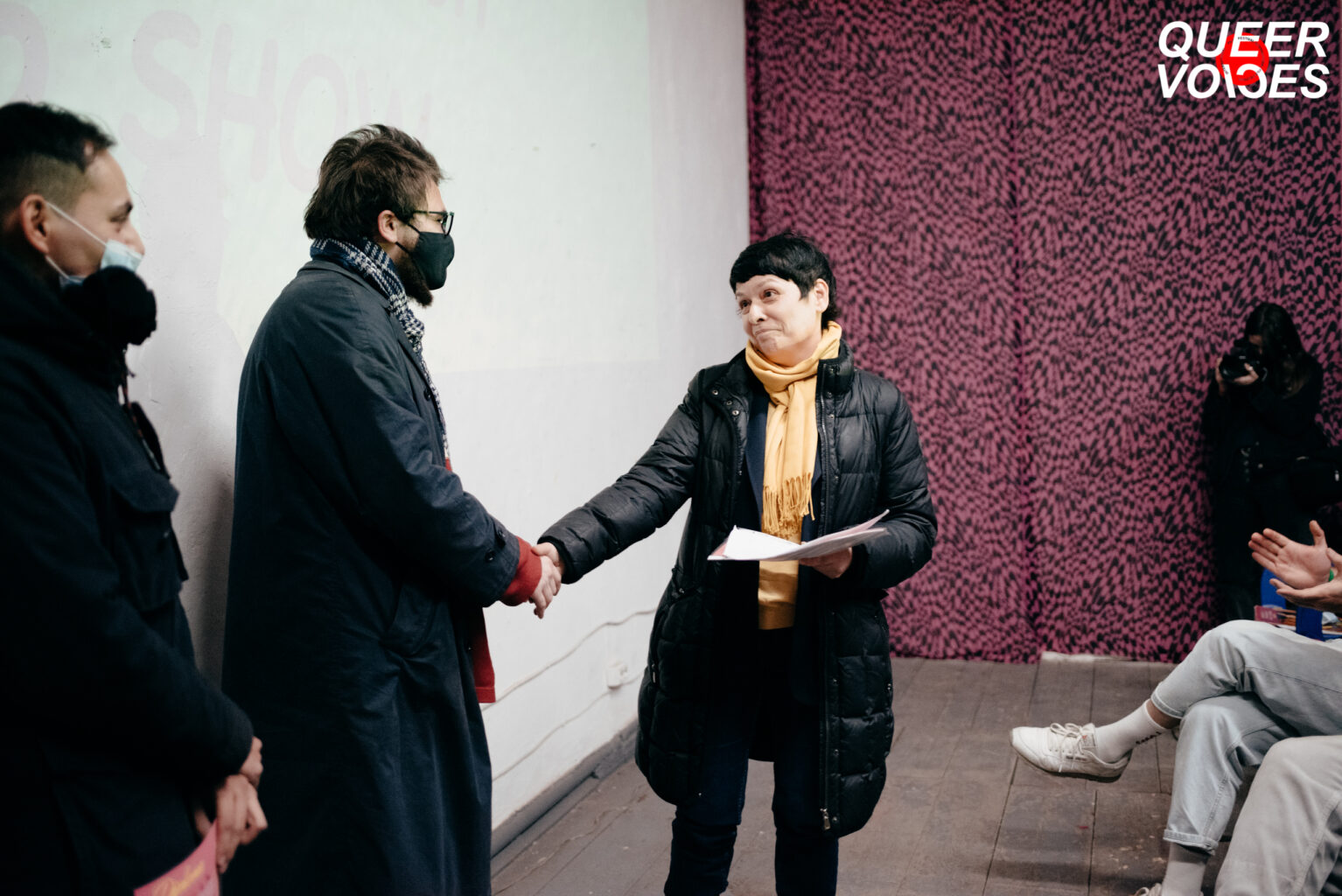
This was a special edition with various events that welcomed all those interested in the queer cinema content. The QVIFF team hopes that the guests of the Festival have strengthened their positive views on the community and that its content gave courage to everyone that struggled with their own identities, or it made them become better allies.
The fourth edition of the Queer Voices International Film Festival was organised by A.O. Moldox and Cinema Queer Stockholm, with the financial support of the Swedish Institute and Embassy Office of Netherlands in Moldova. Civil society partners – Coaliția Sectorului Cultural Independent din Republica Moldova, Cocoșul Roșu, Oberliht, Platzforma, Queerdos, Zpațiu. Media partners – #diez.md, Locals.md, Moldova.org, Newsmaker.md

